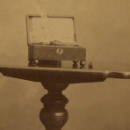
|
American Anti-Slavery Society  
Founded in Philadelphia in 1833, the American Anti-Slavery Society was a more radical
alternative to the Pennsylvania Abolition Society. The
Anti-Slavery Society advocated a broadly based anti-slavery movement, and insisted
upon immediate and complete emancipation without compensation for slaveholders. It
published an official weekly newspaper, the National Anti-Slavery Standard.
Auxiliary groups included the Pennsyvlania Anti-Slavery Society,
the Philadelphia Female Anti-Slavery Society, and the Young Men's Anti-Slavery
Society. |
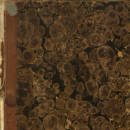
|
American Colonization Society  
In December 1816, delegates met in Washington, D.C. and organized the American
Colonization Society. They voted to begin seeking voluntary removal of U.S. blacks
to Africa. That same year, thirty-eight African-American passengers were taken to
Sierra Leone by a merchant named Paul Cuffee, a free black member of the Society of
Friends. The Colonization Movement was controversial within the Society of
Friends. |
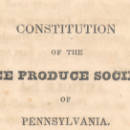 |
Free Produce Society of Pennsylvania  
The free-produce movement was a boycott against goods produced by slave labor. In
1826, Friends in Wilmington, Delaware, drew up a charter for a formal free-produce
organization and Baltimore Quaker Benjamin Lundy opened a store that sold only goods
obtained by labor from free people. In 1827, the movement expanded with the
formation in Philadelphia, Pennsylvania of the "Free Produce Society" founded by
Thomas M'Clintock and others. Though the free-produce movement was not intended as a
sectarian response to slavery, most of the free-produce society were comprised of
Quakers. See also Philadelphia Free Produce Association of
Friends. |
TOP |
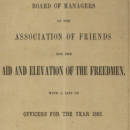
|
Friends Association for the Aid and
Elevation of the Freedmen  
Established by Hicksite Quakers in 1864, this association provided charitable
assistance to recently freed slaves. It opened around the same time as an equivalent
Orthodox Quaker group (Friends' Freedmen's Association), and about two years after
the Women's Association of Philadelphia for the Relief of the Freedmen—a
largely but not exclusively Quaker group. The New York Association
of Friends for the Relief of Those Held in Slavery and the Improvement of the
Free People of Color also existed at the same time.
|
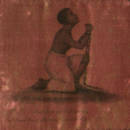
|
New York Association of Friends for the
Relief of Those Held in Slavery and the Improvement of the Free People of Color  
A Quaker society in New York City, organized in 1839. Its purpose was to support the
abolition of slavery and educational charities for blacks. Similar organizations,
including the Friends Association for the Aid and Elevation of the
Freedmen, were founded in Philadelphia 25 years later. |
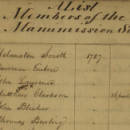
|
The New-York Society for
Promoting the Manumission of Slaves,and Protecting Such of Them as Have Been, or May
Be Liberated  
Formed in 1785— about a decade after the first American antislavery society,
the Pennsyvlania Society for Promoting the Abolition of Slavery—the
New York society opened the African Free School two years afterwards. Its original
members included John Jay and Alexander Hamilton. Later, many members of the Society
of Friends, including Isaac T. Hopper, joined the society.
|
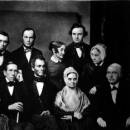 |
Pennsylvania Anti-Slavery Society  
The American Anti-Slavery Society was organized in Philadelphia
in 1833, but the separate Pennsylvania branch of the society was not opened until
1837. |
TOP |
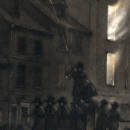
|
Pennsylvania Hall Association   
The Pennsylvania Hall Association was a stockholders association formed in 1837 to
erect a building in Philadelphia, Pennsylvania, dedicated "to Liberty and the Rights
of Man." The Hall was erected on 6th Street, between Cherry and Race Streets. Many
of the primary movers behind the Association were Quakers involved in the
anti-slavery movement. The building was opened on May 14, 1838, but, as a symbol of
the abolitionist movement, it was destroyed by an angry mob on May 17, 1838.
|
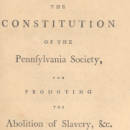 |
Pennsylvania Society for Promoting the
Abolition of Slavery  
Commonly known as the Pennsylvania Abolition Society, this was the first anti-slavery
organization in the United States. Begun in Philadelphia in 1774 by the Quaker
Anthony Benezet, its membership was substantially composed of Friends. It was
reorganized in 1784, and again in 1787, when it was renamed the Pennsylvania Society
for Promoting the Abolition of Slavery, the Relief of Free Negroes Unlawfully Held
in Bondage, and for Improving the Condition of the African Race. In 1833,
abolitionists frustrated with the slow pace and compromising attitude of the
Pennsylvania Abolition Society founded the more radical American
Anti-Slavery Society and its subsidiary Pennsylvania
Anti-Slavery Society.
|
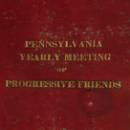 |
Pennsylvania Yearly Meeting of Progressive
Friends  
Opened at Old Kennett, Chester County, Pennsylvania, in 1853 as a separation from
meetings in the Western Quarterly Meeting of Philadelphia Yearly Meeting (Hicksite).
Progressive Friends were part of a reform movement which developed among Hicksite
Friends in the 1840s, but also included many non-Quaker liberals and radicals. The
largest group became formally organized as the Pennsylvania Yearly Meeting of
Progressive Friends, which met at Longwood in Chester County, Pennsylvania, from
1853 to 1940. Progressive Friends advocated a religion of humanity which stressed
the inherent goodness and perfectibility of humankind and promoted such reform
causes as abolition of slavery, temperance, women's rights, opposition to capital
punishment, prison reform, homestead legislation, pacifism, Indian rights, economic
regulation, and practical and co-educational schooling. A similar group organized in
Waterloo, N.Y. as the Yearly Meeting of Congregational Friends.
|
TOP |
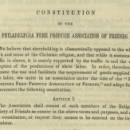 |
Philadelphia Free Produce Association of
Friends  
The free-produce movement was a boycott against goods produced by slave labor. Though
the free-produce movement was not intended as a sectarian response to slavery, most
of the free-produce associations were Quakers: the idea of a boycott of slave
produce dates from at least the mid 18th century when it was advocated by John
Woolman, Joshua Evans and others. The Philadelphia Free Produce Association of
Friends, founded in 1846, was a specificially Quaker organization. |
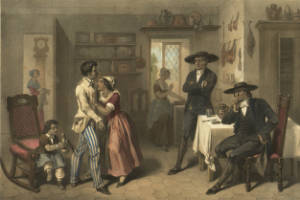 |
Underground Railroad  

The Underground Railroad was not a formal society, but a loosely-organized network of
abolitionists dedicated to helping slaves escape to freedom. These "conductors"
of the Underground Railroad hid runaways in safehouses along the route north, formed
vigilance committees in major cities, and provided legal advice to runaways who were
captured. It is impossible to pin down a precise start date, but one of the eariest
references to runaway slaves receiving organized assistance comes from a letter
written by George Washington in 1786. When a neighbor's slave escaped, Washington
wrote to Robert Morris that "a society of Quakers, formed for such purposes,
have attempted to liberate him...acting repugnant to justice...[and] in my opinion
extremely impoliticly with respect to the State." Quakers remained a dominant
presence in the Underground Railroad network for almost two centuries, and many
prominent Friends—including Isaac T.
Hopper, Thomas Garrett, and Elijah F. Pennypacker—were
known to be involved. |
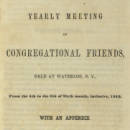 |
Yearly Meeting of Congregational Friends

Progressive Friends in the Scipio, Farmington and Michigan Quarterly Meetings
separated in 1848 from Genesee Yearly Meeting: Waterloo Yearly Meeting of opened in
1849 under the Basis of Religious Association (1848). It was composed of the former
Junius Monthly Meeting and other Friends separating from the Scipio Quarterly
Meeting. It became the Annual Meeting of the Friends of Human Progress in 1854, and
continued until approximately 1884. See also Pennsylvania Yearly
Meeting of Progressive Friends.
|
TOP |













